Here's Tom's description of the events of Sunday afternoon, February 15:
Turns out we really are in the thick of it. I was cooking on the barby, and Brigitte was sending some email pics-dial up, so we weren't listening for phone calls.
One neighbour, came by to say that there was currently a fire 2 km away, at the bottom of the hill towards Belgrave. His wife and kids were going to leave and he would stay. We decided to pack a bag, with our passports, and get ready to go. Our other neighbour, came by to say 'No worries', the wind was blowing the fire toward the Ferny Creek Primary School, in a slightly different direction away from us. So now what? One neighbour says staying is a possibility, one says his family is going.
All roads except one were closed.
I started filling buckets and 2 wheelbarrows with water. This took ten minutes, as we had to hook up the hose. All the while, helicopters flew overhead.
We decided to eat supper, as this might be our last meal-not thinking we would burn, but that we might not have a stove and a fridge to cook a hot meal.
We had a toast of chilled white wine-Australian, and as we were clearing up, both neighbours came by to say the fire had been downgraded.
We listened to one of the ABC channels, devoted mainly to fire news when the fire event is urgent, still with our one bag by the door, but the crisis was over.
I still worried about embers flying over, and tried to watch T.V., with one eye to the sky, but I just could not relax.
The stress made me dog-tired, and I went to bed.
More from Brigitte:
ABC is doing a wonderful job of using one of its radio channels to provide information for fire-affected areas and people. Announcements are read every 15 to 30 minutes, so you know what's up for your area. The CFA also has a web site that is constantly updated. It's one thing to have your radio on constantly, but when you need it, it's an excellent resource (this is one of the recommendations that came from the last huge fires, that there needed to be a way to inform the public of the danger/threat.)
The scoop is that this fire likely was lit by someone... forensics are at the scene figuring things out. Yesterday was relatively cool (approx. 26 C), with winds that were manageable with regard to fighting a bush fire, and the fire authority had enough resources available to throw a lot of firefighting power at this fire -- in all, 26 "appliances" were available to fight the fire, including people, trucks, and helicopters. A lot of helicopters were flying overhead. (One helicopter is called "Elvis" -- I've been asking why but don't have a coherent response yet; This paticular unit has a large appendage dangling from it, used to suck up water ?? Was Elvis supposedly well endowed?) All neighbours were on the threat after the siren went off -- they came to tell us. Two people phoned us to let us know of the danger. Our decision was to go as soon as there was an immediate threat to our particular area, up the hill to a town called Sassafras, and we could head down from there.
Rob asked me about my thoughts about the article from The Australian... We haven't been here one month, so all I can do for now is listen to what I'm hearing around me. I have been listening to the radio a lot, and reading a variety of articles in The Age and other newspapers. It is the interface here between people and nature that is being discussed. This is where you want to be, of course. Why wouldn't you want to live in hills with exotic birds, with temperatures at least 5C lower than down at the bottom, with gorgeous plant life all around (pics are coming, I promise!), and with fabulous, generous and thoughtful neighbours? People have had homes and cottages and homes here for at least 100 years, and now there are many communities (suburbs of urban Melbourne) that are spreading out. This is idyllic at many levels. What happened was like that "perfect storm" we've read about -- extreme temps, high winds, sudden fire events. And the CFA were there, but it was stronger than they had experienced.
I read that the Aboriginal people of Australia used winter and autumn fires to control the threat of huge summer bush fires by burning off a lot of the underbrush. I don't know what the historic data are regarding drought, but Australia is still in a serious drought situation, so the hills, the fields, and the cities are dry. One small smark can create a conflagration. Probably there will be new building codes, new requirements for bunkers to be built, new code for reducing the amounts of trees close to houses. This doesn't bring back the people who were lost last weekend.
The "experts" are saying this interface of a larger population, drought and dry landscape and trees is what created the gigantic fires. There will be a royal commission to see what happened, and to find new ways of living safely in this beautiful and awesome place. If people and communities have the money, certainly new ways of building and preparing will have to be part of the plan.
We were certainly not prepared for what we experienced last night -- I think we have been living in a bit of a bubble, given that we are still settling in. However, everyone got involved, we were given information that was useful, and we are now more prepared. No people were hurt in the fire, although approximately 14 hectares burned. It's a blessing that the CFA had available resources (the other fires are in a controlled state, relatively speaking), and they threw what they had at this fire.
People at the school this morning talked about their experiences -- some had to put out embers; others left; others were happy to eat out somewhere while they waited to hear. Everyone was talking about it, and you can feel there is anxiety in our minds. It's now much more real to us.
Kerala Duck Eggs curry with flaky Paratha
-
Duck Egg Curry (an excellent way to start the day)
If you can't find Duck eggs, large chicken eggs are also fine.
3 hard boiled duck’s eggs, shelled ...
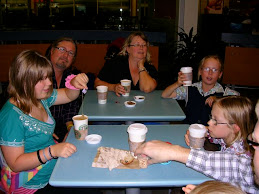

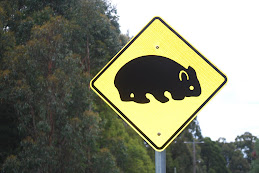

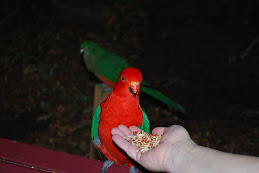
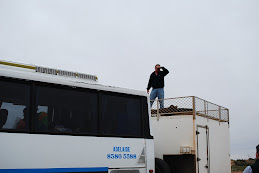




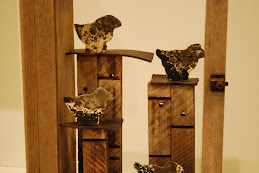

4 comments:
I kept thinking what a great adventure your trip would be. Now I keep hoping that it doesn't turn into a big adventure. It does sound like you are being well cared for by the neighbours which is good. We appreciate these updates.
Thanks for the update. It reminded me of the Okanagan fires of 2003. The biggest risk in then was the interface zone too. The attraction of living in the urban edge is understandable, but none of the natural burns or managed processes of control burns can be tolerated in these developed areas. Take care...
Here are some twitter feeds that you guys can follow to keep up to date.
Carol Overington
http://twitter.com/overingtonc
Kevin Rudd
http://twitter.com/KevinRuddPM
Malcolm Turnbull
http://twitter.com/TurnbullMalcolm
Here are some pix http://www.boston.com/bigpicture/2009/02/bushfires_in_victoria_australi.html
wow such intense updates! I am glad that you are all well, and looking out for eachother!
it's been great to read about your adventures, and my thoughts are definitly with you!
Jenny
Post a Comment